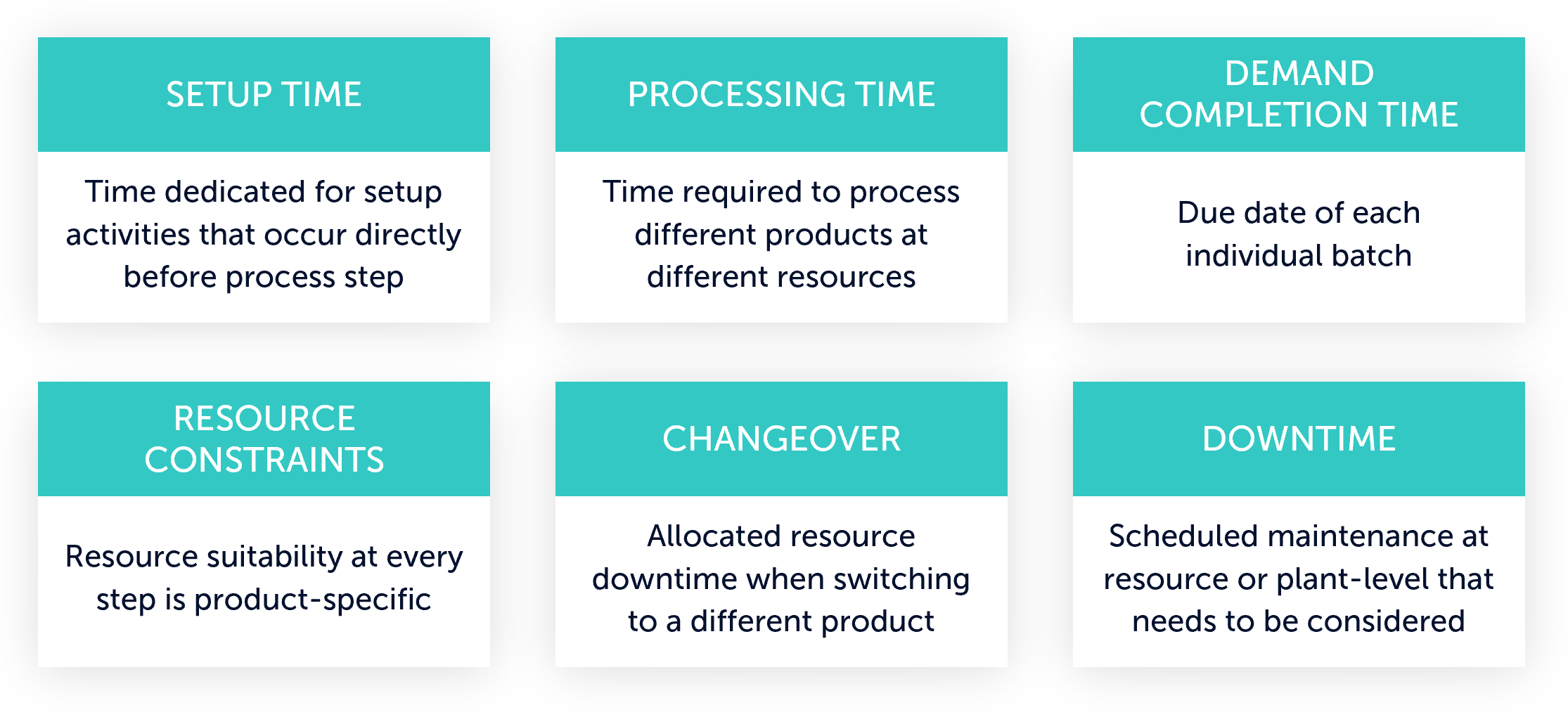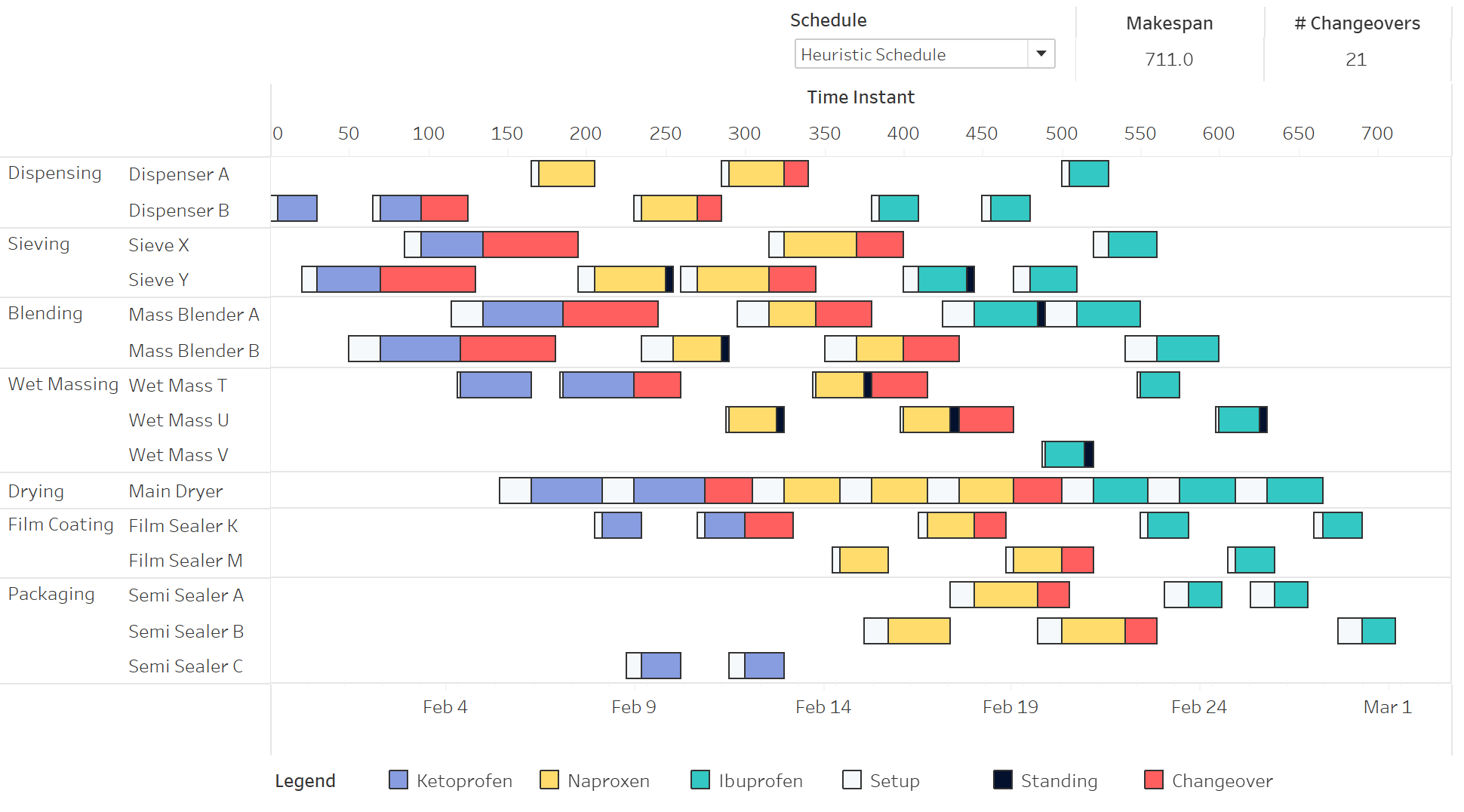How Aimpoint Digital Increased Throughput and Reduced Scheduling Time
Explore how Aimpoint Digital’s scheduling solution enabled our pharmaceutical client to generate optimal production schedules in under 40 minutes and allowed increased throughput of millions of dollars.



%20(1).png)
The Challenge
Our client utilized manual processes employing heuristics for generating production schedules. The client required production schedules for a horizon of over two years with over one hundred demand batches. The scale meant that the heuristic processes took weeks and often led to suboptimal solutions.
Our Approach
The challenge of generating production schedules is evaluating and identifying the best possible schedule given all operating constraints. We implemented a continuous-time batch scheduling model using mixed integer linear programming (MILP). MILP-based optimization models allow us to explore the search space of all production schedules efficiently. Furthermore, MILP models are flexible and can easily incorporate many operating requirements, including the following:

At Aimpoint Digital, we follow an iterative development process with continuous and extensive testing. We developed multiple versions of our optimization model and obtained continuous feedback from our stakeholders on the validity of the model solutions. This process helped us ensure that all modeling assumptions were transparently communicated and verified by our stakeholders and that the solutions generated were practical and feasible.
We always emphasize ensuring that the solutions we develop are user-friendly and maintainable long term. We integrated our optimization models within the client’s existing ERP tool to ensure the smooth adoption of the solution in production.
Benefits of Mathematical Optimization: An Illustrative Example
Optimization models can provide such massive benefits because of their ability to effectively explore the feasible space and come up with solutions that can be counterintuitive. As an example, suppose we have the following demand batches:
A commonly employed heuristic to generate a feasible schedule is prioritizing batches for production due earlier. For the above demand, this would imply first producing the two batches of Ketoprofen, followed by three batches of Naproxen and three batches of Ibuprofen. This instinctively appealing approach also minimizes the number of changeover operations (i.e., resource idle time). However, this strategy will only sometimes lead to the smallest makespan. The figure below compares the optimal schedule against the result of the rule-based approach.

Note: To avoid disclosing proprietary data, the visualization shown in the Tableau dashboards is illustrative and anonymized.
Click to View Production Scheduling Optimization Dashboard
By separating the Ibuprofen batches, the optimized schedule led to 35-hour time-savings. In practice, our client found an increased number of changeovers were often worth the time saved and the extra throughput in batches generated as a result. This example underscores the advantage of optimization; it helps you identify solutions you may not have thought of in the first place.
Results
Aimpoint Digital’s scheduling solution reduced production schedule generation time from 2 weeks to under 40 minutes.

Freed up 2 months for 10 extra batches, boosting output and enabling flexible schedule adjustments.


Key Takeaways
Our optimization experts are ready to help you with your production scheduling needs. Contact us to learn more about creating automated solutions to generate efficient production schedules for your operations.
Related case studies
Let’s talk data.
We’ll bring the solutions.
Whether you need advanced AI solutions, strategic data expertise, or tailored insights, our team is here to help.




.png)
.png)
